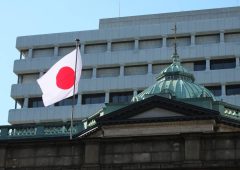New Proposal in Brazil Could Restrict Stablecoin Transfers to Private Wallets
01.12.2024 10:00 2 min. read Kosta Gushterov
Brazil's Central Bank (BCB) has unveiled a draft proposal aiming to restrict the withdrawal of foreign currency-backed stablecoins to self-custody wallets.
This move is part of broader efforts to regulate the nation’s expanding cryptocurrency market.
The proposed framework would prohibit crypto exchanges from enabling transfers of stablecoins tied to foreign currencies to private wallets. The BCB views this as aligning digital assets with existing financial instruments, such as foreign investments and credit, while ensuring compliance with global financial regulations. Service providers would also be required to report client data to the central bank.
While the BCB acknowledges the potential of virtual assets to enhance foreign exchange services and investments, it has flagged risks involving investor protection, cybersecurity, and macroeconomic stability. The regulatory body argues that its measures will provide legal clarity for businesses dealing with international crypto transactions and foreign currency-backed assets.
Brazil’s crypto market has seen substantial growth, with over $90 billion in digital assets transacted between July 2023 and June 2024, according to Chainalysis. Stablecoins, particularly USD-backed ones, dominate this market, often serving as a stable value medium for cross-border B2B payments. Critics warn that the proposed restrictions could stifle the industry’s progress in the region.
Stablecoins, now a fundamental part of the crypto ecosystem, have reached a global market cap of $190 billion. The public consultation for Brazil’s proposed rules will remain open until February 28, 2025, after which the BCB will decide on final regulations based on stakeholder feedback.
-
1
U.S. State of Connecticut Blocks Crypto from Public Sector Operations
12.06.2025 16:00 1 min. read -
2
Federal Reserve Clears Path for Banks to Enter Crypto Market
24.06.2025 8:00 2 min. read -
3
Vietnam Charts a Clear Course for Digital Assets With New 2026 Law
16.06.2025 18:00 1 min. read -
4
GENIUS Act Clears Senate, Setting Stage for First U.S. Crypto Law
18.06.2025 12:00 1 min. read -
5
Coinbase and Set Gemini to Expand in EU Under MiCA Rules
17.06.2025 13:00 2 min. read
Crypto Advocates Back Sen. Cynthia Lummis’ Push to Reform Digital Asset Tax Rules
As the U.S. Senate debates a sweeping reconciliation package dubbed the “Big, Beautiful Bill,” crypto industry advocates are rallying behind an amendment introduced by Senator Cynthia Lummis aimed at reforming outdated and burdensome tax rules for digital assets.
Germany’s Largest Banking Group Sparkassen to Offer Crypto Trading by 2026
In a major shift from its earlier stance, Sparkassen-Finanzgruppe — Germany’s largest banking group — is preparing to introduce cryptocurrency trading services for retail clients by the summer of 2026, according to a report from Bloomberg.
Kazakhstan to Establish State Crypto-Reserve Under Central Bank Oversight
Kazakhstan is taking a major step toward integrating digital assets into its national financial strategy, with plans to establish a state-managed crypto-reserve.
Europe’s Largest Euro-Denominated Spot Crypto Exchange Secures License Under MiCA
Bitvavo, Europe’s largest euro-denominated spot crypto exchange, has officially received a MiCA license from the Dutch Authority for the Financial Markets (AFM), allowing the firm to operate across all 27 European Union member states.
-
1
U.S. State of Connecticut Blocks Crypto from Public Sector Operations
12.06.2025 16:00 1 min. read -
2
Federal Reserve Clears Path for Banks to Enter Crypto Market
24.06.2025 8:00 2 min. read -
3
Vietnam Charts a Clear Course for Digital Assets With New 2026 Law
16.06.2025 18:00 1 min. read -
4
GENIUS Act Clears Senate, Setting Stage for First U.S. Crypto Law
18.06.2025 12:00 1 min. read -
5
Coinbase and Set Gemini to Expand in EU Under MiCA Rules
17.06.2025 13:00 2 min. read


